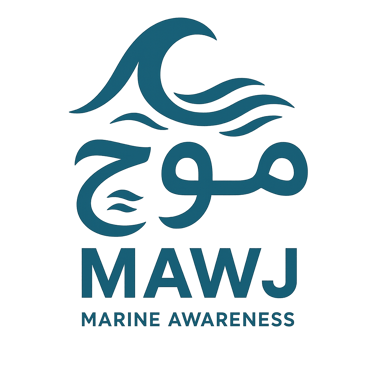Our identity pulses from the depths of the sea

The True Guardian of the Sea
While the media often casts sharks as villains of the deep, the truth swims far beneath the surface. Each year, fewer than 70 unprovoked shark attacks are reported worldwide — most of them non-fatal. Meanwhile, fewer than 10 people lose their lives to sharks annually. But the ocean tells another story… Every year, millions of sharks are hunted, slaughtered, and discarded — their fins traded, their bodies forgotten. So no, sharks are not the real danger. It’s their absence that threatens the delicate balance of marine life. How could losing a predator cause such chaos? That’s the current we’ll dive into in this article.
Technical Director – Raiidat Al-Istidama Environmental Consultancy – Riham Jouda
7/21/20252 min read
1. Maintaining Ecological Balance & Regulating Species Populations
Sharks play a critical role in the ocean’s health by preying on weak or sick animals and keeping certain species from overpopulating.
When sharks disappear, populations of herbivores and species like turtles can surge uncontrollably — overgrazing seagrass beds and damaging coral reefs. This imbalance sends ripples through the entire ecosystem.
“When sharks vanish, chaos takes hold beneath the waves.”
2. Supporting Marine Economies & Fisheries Sustainability
Sharks aren’t the enemy of fishers — they are silent allies of sustainable fishing.
By maintaining the health of fish stocks and limiting the spread of disease, sharks indirectly support coastal livelihoods and eco-tourism.
“Sharks don’t devour wealth — they guard it.”
3. Reliable Indicator of Marine Ecosystem Health
Sharks are only found in balanced, thriving ocean environments. Their presence serves as a powerful indicator of biodiversity and ecosystem integrity — nature’s own quality stamp.
“Where sharks swim, the sea is still alive.”
The Real Danger: Shark Extinction
Over 100 million sharks are killed every year due to overfishing and the fin trade. This large-scale loss disrupts marine food webs and threatens ocean stability.
“Don’t fear the shark… fear an ocean without it.”
Sharks & the Food Web: A Keystone Cog in the Machine of Marine Life
Sharks sit at the top of the food chain, regulating the ecosystem from above.
Without them, the entire food web destabilizes — triggering what's known as a trophic cascade: species misbehave, populations swing out of control, and habitats begin to collapse.
“The shark may sit at the top — but it carries the whole ocean on its back.”
Sharks are more than just large marine animals.
They are living regulators, guardians of balance, and anchors of biodiversity.
They are the ocean’s safety valve — and nothing can replace them.
It’s time we move from fear to understanding, and from bias to protection.
Whether through policy, education, or personal choices, every effort to protect sharks is a direct investment in the health of our seas — and the future of our planet.
References:
Dulvy, N. K., et al. (2014). Extinction risk and conservation of the world's sharks and rays. eLife, 3, e00590.
Ferretti, F., et al. (2010). Patterns and ecosystem consequences of shark declines in the ocean. Ecology Letters, 13(8), 1055–1071.
Gallagher, A. J., & Hammerschlag, N. (2011). Global shark tourism: a review of the economic impacts, management strategies and governance. Marine Policy, 35(5), 595–600.
Heithaus, M. R., et al. (2008). Predicting ecological consequences of marine top predator declines. Trends in Ecology & Evolution, 23(4), 202–210.
Worm, B., et al. (2013). Global catches, exploitation rates, and rebuilding options for sharks. Marine Policy, 40, 194–204.
Florida Museum of Natural History (2024). Yearly Worldwide Shark Attack Summary.
IFAW (2023). FAQ: Are Sharks Really Dangerous to Humans?


© 2025 Mawj – All rights reserved
MAWJ
Our identity pulses from the depths of the sea
